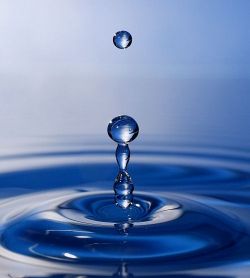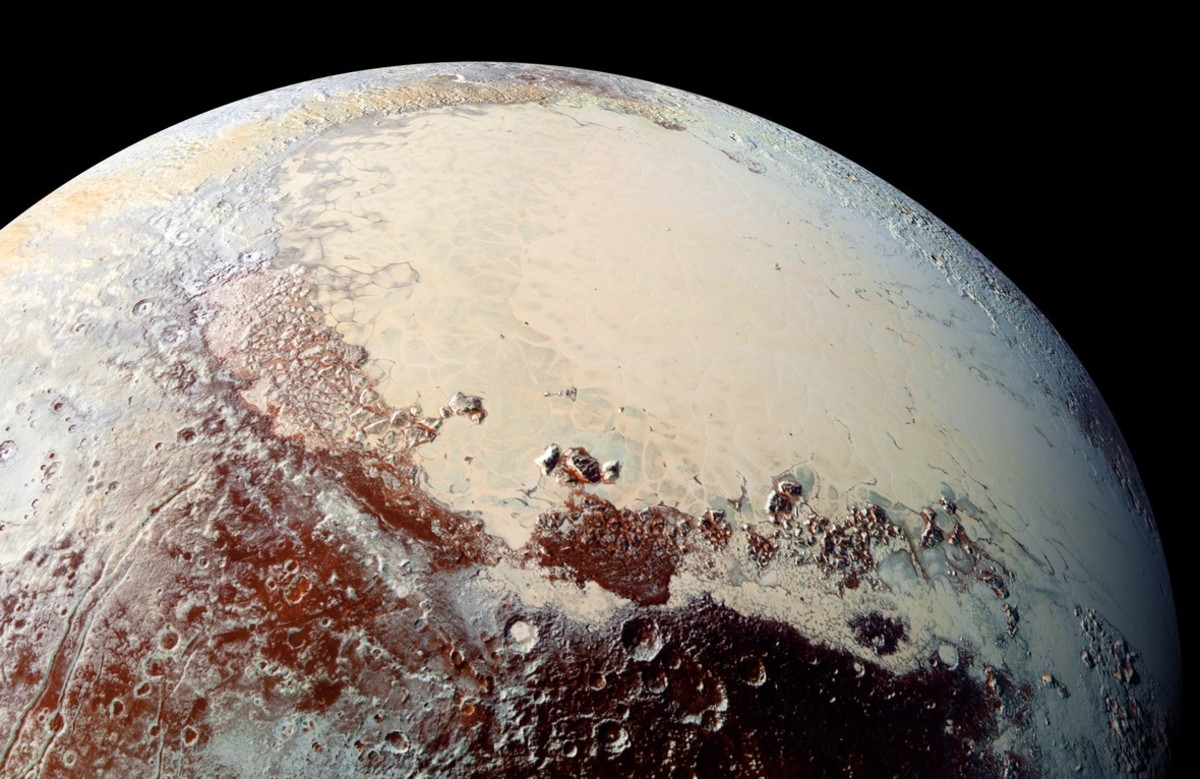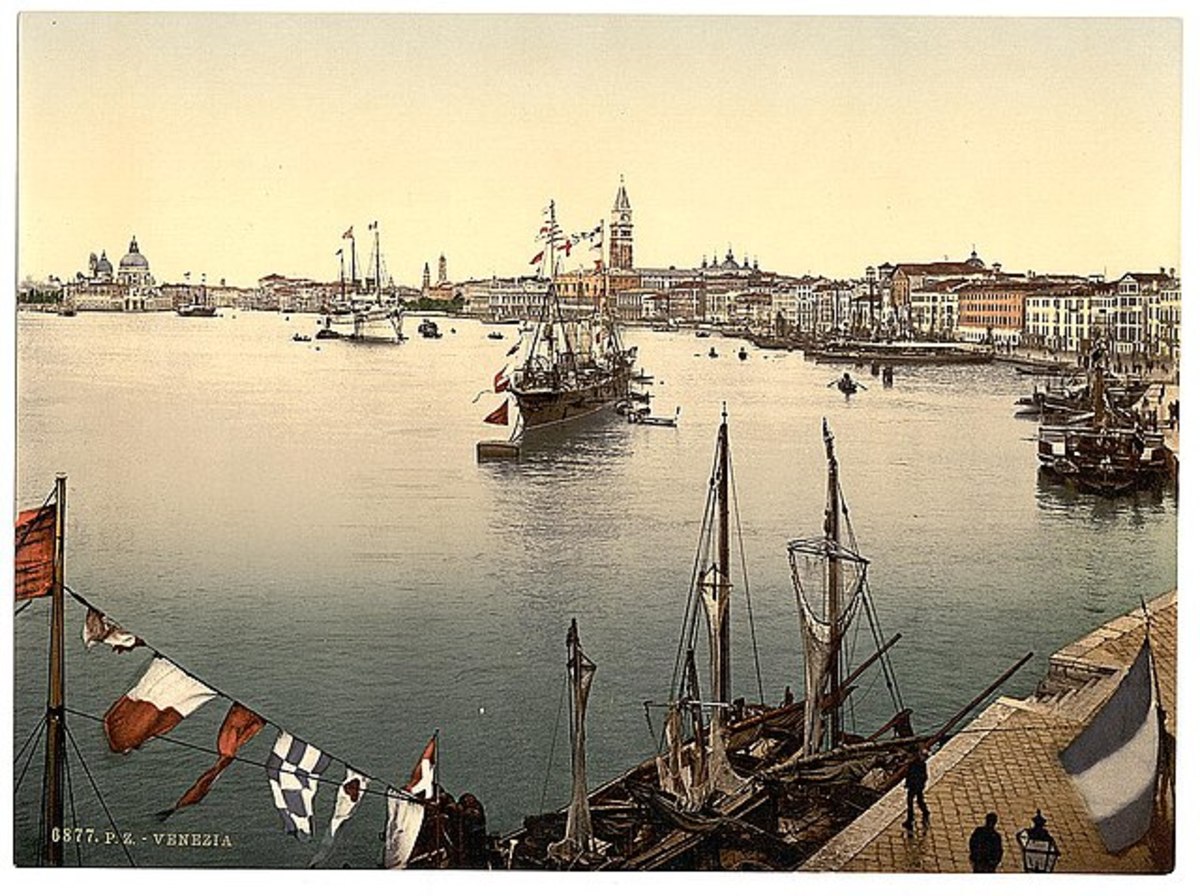7 Things You Didn't Know About Water

Oh No - Not Another One Of Those 'Weird Facts About Water' Articles!
I promised myself that I would never write the kind of lens titled '5 Interesting Things About ..', or '10 Things You Didn't Know About ...', but it seems here I am.
Who cares if there are 326 million cubic miles of the stuff laying around on the planet, or that it dissolves more substance than any other liquid? These are just facts, that's all. There's not much point in dragging the internet for facts and then presenting them (again).
So what changed my mind? I read a science fiction book called 'Calculating God' with a couple of startling facts about water, and then I really started looking! Here are the 7 incredible facts you really need to know about water.
(Photo by Michael Melgar: Creative Commons)
The alien explains that his 'people' are not looking for reasons to believe, His existence is obvious, now they are trying to actually locate him. Some of the arguments presented for the evidence of an Intelligent Designer for the Universe involves some basic facts about water - and this is what started me off. The story line, although entertaining, became secondary to the ideas presented about Life and also possible interaction between sentient beings.
Here we go then, no more of those silly water facts.......(by the way, did you know that US households use 346 billion gallons each year ...... or that 75% of the Earth's water is located at the Poles, or that ... )
Water Is The Only Liquid that Expands When It Freezes
"Tell Me Something I don't Know" I Hear You Say
Yes, every child knows that water expands and is lighter than it's liquid form when in the form of ice, but not too many people really understand the importance of this fact. Imagine a lake during a long cold Winter. The top layer freezes into ice, which rests on the surface of the water and gets thicker if the cold persists. Fishes and plants below the surface are protected from the cold by the layer of ice and can survive until warmer weather arrives.
Now picture the same situation if ice were heavier than water. It would form on the surface and sink to the bottom of the lake, after which it would be replaced by warmer water. This would then too fall to the bottom after freezing. After a while the lake would be solid ice with nothing left alive. In the Ice Ages the seas and oceans would be solid ice with very little life left. After the Ice Age had finished, it would take centuries to thaw out the oceans.
First Mind Blowing Truth ...

![By Jim Bahn (Sherman Tree Uploaded by hike395) [CC-BY-2.0 (http://creativecommons.org/licenses/by/2.0)], via Wikimedia Commons By Jim Bahn (Sherman Tree Uploaded by hike395) [CC-BY-2.0 (http://creativecommons.org/licenses/by/2.0)], via Wikimedia Commons](https://usercontent2.hubstatic.com/10452709.jpg)
A Little Tension Is A Good Thing - If You Are Water!
Water has an incredibly high surface tension, which can be observed in these simple ways:
- Some aquatic insects can walk across a pond
- A needle carefully placed onto the surface of class of water will not sink
- Observe water in a glass - the surface is raised slightly
OK, no big deal - except that the same surface tension enables a phenomenon called 'capillary action'. Basically, water will use it's water tension to travel along thin tubes, which is an incredibly useful talent - (I can't do it, for example).
This action is so powerful that water can climb through the tiny tubes inside the trunk of a tree and get to the top of a 300 foot Sequaoi tree! (Photo shows General Sherman in Yellowstone Park)
Second Brain Numbing Deduction ...

Surface Tension + Freezing = Soil (Huh?)
When some rocks come into contact with water, capillary action causes moisture to seep deep inside the stone. Naturally, there are rocks that are just about impervious to water penetration, and others that suck up the stuff like a thirsty fireman. Most kinds do absorb moisture to varying degrees.
Many rocks 'live' in more or less temperate areas where temperatures can fluctuate substantially, being above freezing in the day, and well below at night. As we know, water expands when frozen and so exerts enormous pressure on the crystalline structure of rocks.
Over many cycles of cooling and heating, the rock is broken down into smaller pieces until the end result is - Soil! Mankind has prospered over the last few thousand years because of the possibility of growing plants to feed ourselves, and also our domesticated animals.
So This Is Why I Say ...

We Interrupt This Lens For An Important Message ...

On With The Show - It's Crystal Clear Dr Emoto

Dr Masaru Emoto is a graduate of Yokohama Municipal University. In 1986 he established the IHM Corporation in Tokyo and is a certificated Doctor of Alternative Medicine. He became interested in the properties of water from an alternative point of view and carried out research to try and discover the mysteries of water.
He realized that the best way to analyze various water samples from around the world was to view it in frozen crystalline form. Emoto was particularly interested in the effects of intentions, thoughts, music and prayer on the water around us. His findings are startling and contradictory to accepted science. The video below (6m:18s) explains the basic concepts.

This has enormous importance for us, both personally and globally. At the global level it means that collectively we could help our planet's water. On a personal level, our bodies are 70% water - what would be the effect on our health and well-being if we treated each other in a kinder way?
Emoto's crystals were disfigured by thoughts of hate and violence, and made beautiful by classical music and messages of love. It was found that audible prayer was particularly powerful - (now, don't go thinking this is a totally 'spiritual' thing. It may be, it may not be - remember to keep your minds open, be curious and just 'love)'!
Great pictures too!
Mind Freezing Deduction ...

Careful What You Say - Water Has A Memory
![Roger McLassus [GFDL (http://www.gnu.org/copyleft/fdl.html) or CC-BY-SA-3.0 (http://creativecommons.org/licenses/by-sa/3.0/)], via Wikimedia Commons Roger McLassus [GFDL (http://www.gnu.org/copyleft/fdl.html) or CC-BY-SA-3.0 (http://creativecommons.org/licenses/by-sa/3.0/)], via Wikimedia Commons](https://usercontent2.hubstatic.com/10452753_f520.jpg)
Homeopathy is an alternative therapy which uses various remedies that are created by dissolving various substances in water. The solution is shaken and samples are divided, added to more water, shaken again and so on. Homeopathists maintain that extreme dilution still have the desired affect, even though there are no molecules of the original substance in the liquid.
Modern medicine always require scientific proof, and so a certain researcher set out to debunk homeopathy.
A pharmacologist at Queen's University, Belfast, (Madeleine Ennis) is a committed anti homeopathy crusader., and devised a controlled experiment to disprove the claims. Her team diluted histamine in water, dividing the sample and diluting with more water until there was no evidence of any molecules at all in the liquid. Histamine causes a reaction in blood cells on contact - it was found that blood cells gave the same reaction when put into contact with the sample. The water molecule seemed to 'remember' the original histamine molecules.
Nicely Put - Does Water Have Any More Memory Tricks?
Well, actually yes it does! the video below gives a very short synopsis of some recent research in Germany (always a serious lot, so their research can normally be relied on). Amongst other things, they found that drops of water 'created' by different people all looked different when examined under a microscope. Not only that, the structure of the drops from one person always looked the same! So what can this mean?
If we accept Dr Emoto's research about the effect of water on ice crystals, then it's a small step to suppose that water may be affected by the thoughts and emotions of different people and change it's own structure accordingly. This means that water can store information. We may not be able to interpret it, but other natural phenomenon on our planet (such as ourselves), can be in turn changed by the information water brings into our lives.
You Think Your Computer Has A Lot Of Memory, But ...

![By Photo by and (c)2006 Derek Ramsey (Ram-Man) [GFDL 1.2 (http://www.gnu.org/licenses/old-licenses/fdl-1.2.html)], via Wikimedia Commons By Photo by and (c)2006 Derek Ramsey (Ram-Man) [GFDL 1.2 (http://www.gnu.org/licenses/old-licenses/fdl-1.2.html)], via Wikimedia Commons](https://usercontent2.hubstatic.com/10452765.jpg)
Final Condundrum - Hang In There!
OK - right now you should be getting the idea. Water is an incredible substance - and there's more!
Water can only do the wonderful things we are discovering if it flows from one place to another and gets re-cycled around the globe. On the face of it, this seems a pretty banal and obvious thing to say. Of course water is liquid, it's just like that.
Well, in fact water's very liquidity is a big puzzle for science. For it's molecular weight, it should be a gas at room temperature, but it's not - it is very, very unique.
A closely related compound, hydrogen sulphide (H2S) is made up of elements with a heavier atomic weight, but is a gas!? So what gives? Scientists tell us that it's due to the unusually high attraction between the atoms that keep them closer together rather than vaporizing into a gas, which is OK as far as it goes, but what I want to know is WHY?
Not only is water's liquidity at the ideal temperatures for life incredibly unusual, but the amount of energy required to change it's state into solid or gas is huge relative to similar substances. What this means is that water resists changing to it's other state, but tries to remain in it's abundant liquid form - this is of course the state which is most useful to life.
Mind Boggling Watery Conclusions
Or ... 'Isn't It Lucky That Water Acts The Way It Does?'
A certain school of thought dismisses this kind of debate with the basic argument that 'What is, IS - it's just like that'. It's just coincidence. Well, for my money that's way, way too convenient. Of course it's like that, but why? Let take a quick look at water's incredibly unusual properties:
- Ice is lighter than water and expands on freezing
- Surface tension permits water to permeate plant life and rocks
- The combination of 1 and 2 creates soil
- Water is fundamentally altered at the molecular level by human intention
- It can remember information about it's surroundings
That's a powerful list of coincidences! How any scientist can accept the incredibly high statistical probability of all these 'lucky' coincidences occurring without questioning an intelligent designer for the universe is beyond my Squid-like understanding.
Last Thought (I'm A Little Tired Now ...)

Hang On ...
Yes, it's true - there are only 6 facts and I promised 7. I lied just to get your attention - sue me.
Got any more great insights into the presence of water on our planet? Add them below, or any comment you like.
Just one thing - please, please fellow Squids - don't add stuff like 'great for swimming in' - (you know who you are!)







